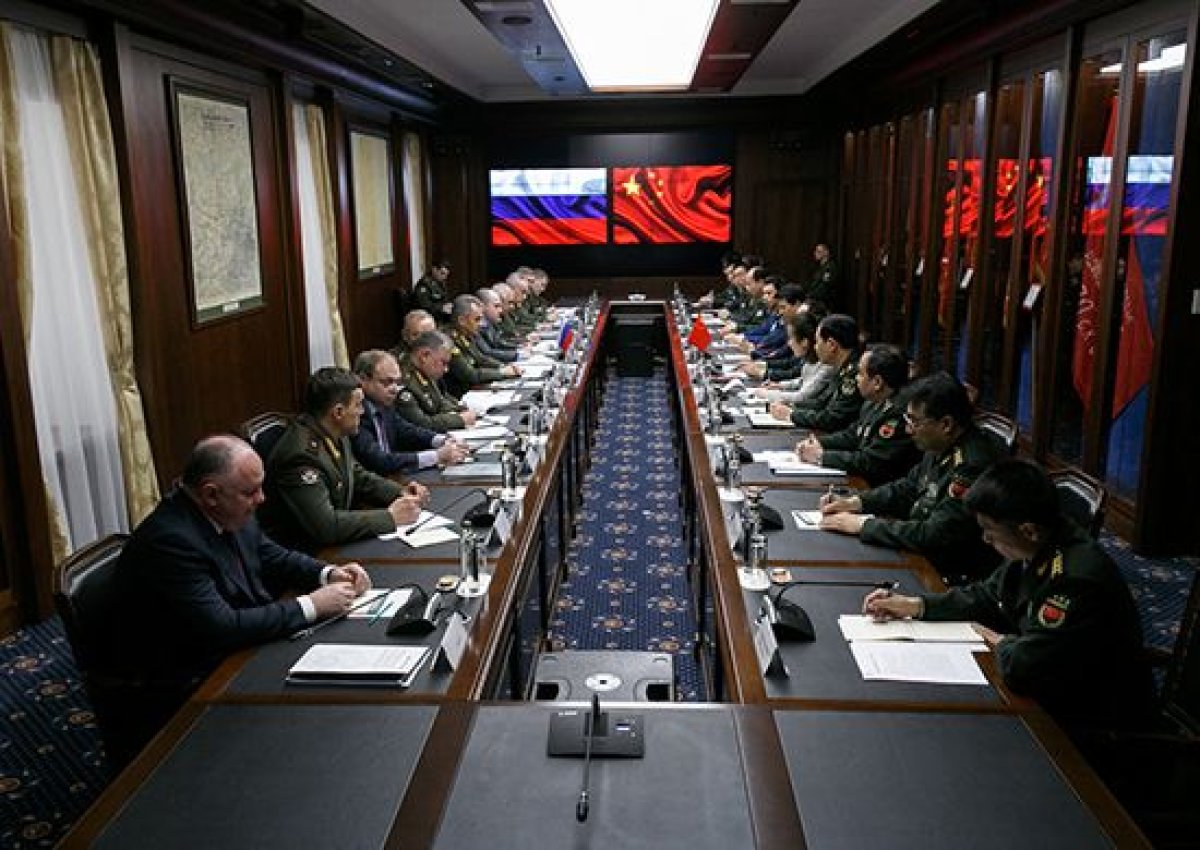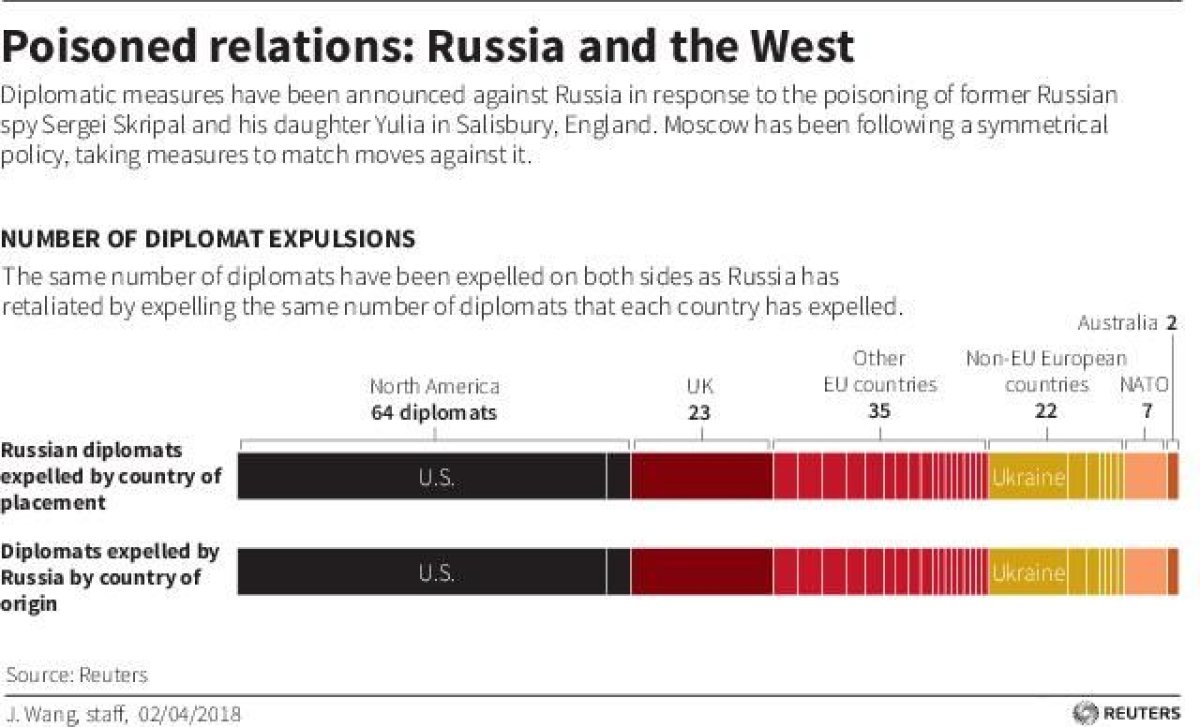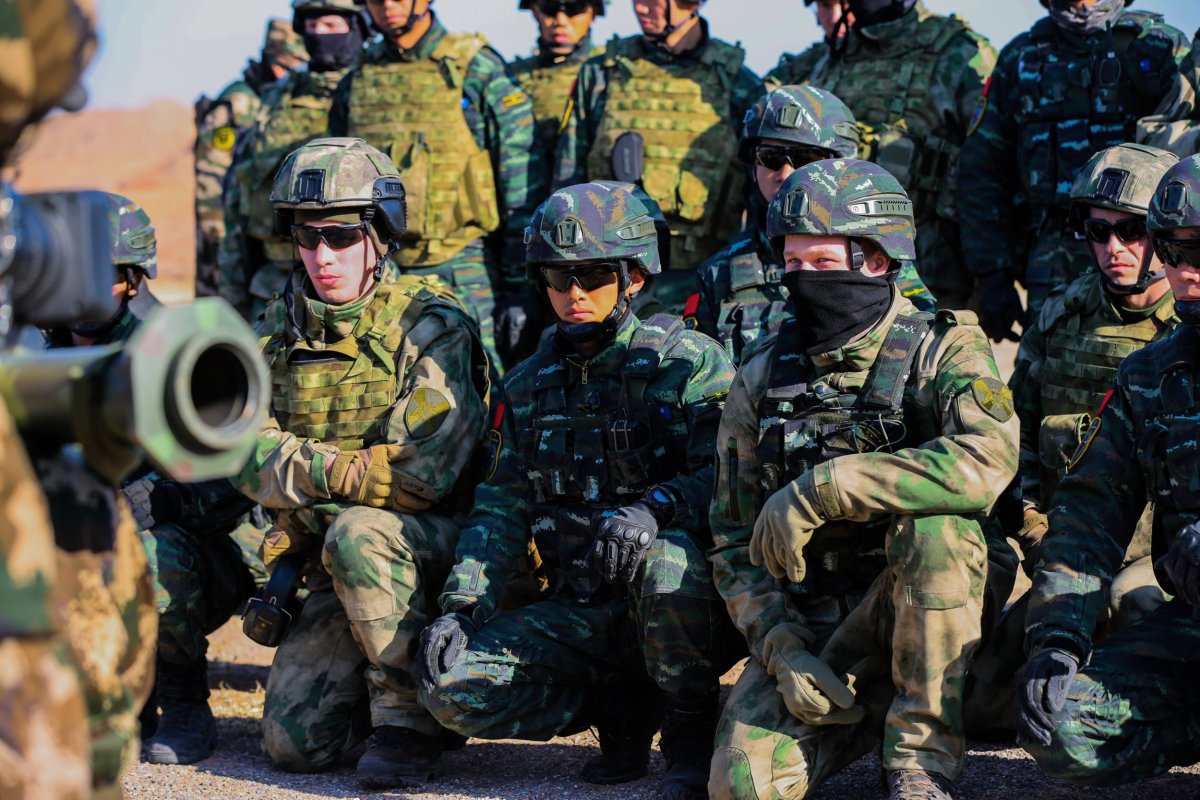China's military leadership has pledged its support to Russia as tensions between Moscow and the West further deteriorate into diplomatic isolation, economic sanctions and dueling defense drills.
In his first visit to Russia, newly appointed Chinese Defense Minister Wei Feng attended the seventh Moscow International Security Conference accompanied by a delegation of other high-level military officials. Emphasizing that his trip was coordinated directly with Chinese President Xi Jinping, Wei said that he had two major messages for Russia at a time when both nations were attempting to modernize their armed forces and strengthen their hands in global affairs in spite of U.S. fears.
Related: Russia's and China's Presidents Are Winning Big as They Challenge U.S. and Take Power From West
"I am visiting Russia as a new defense minister of China to show the world a high level of development of our bilateral relations and firm determination of our armed forces to strengthen strategic cooperation," Wei said at a meeting with Russian Defense Minister Sergey Shoigu, according to the state-run Tass Russian News Agency.
"Second, to support the Russian side in organizing the Moscow International Security Conference the Chinese side has come to show Americans the close ties between the armed forces of China and Russia, especially in this situation. We've come to support you," he added. "The Chinese side is ready to express with the Russian side our common concerns and common position on important international problems at international venues as well."

Russian President Vladimir Putin and his Chinese counterpart command what's often considered the world's second and third most powerful armed forces, respectively, behind the U.S. While the Pentagon has managed to retain a comfortable lead against its leading competitors, Moscow and Beijing have coordinated closely as they both aim to close this gap and check U.S. influence abroad.
As Russia showed off its military prowess by declaring victory in the Syrian conflict and boosting its military power across Europe, China has invested in international infrastructure projects—especially across Asia and Africa—and expanded its presence in the Pacific. Both countries argue they are looking to work with and not against the U.S., but Washington has viewed their rise with suspicion and has taken countermeasures against perceived challenges to the international order it has traditionally dominated for decades.
In addition to boosting its own military power in Europe and Asia, the U.S. has portrayed growing Russian and Chinese influence abroad as an assault on democracy. The West has singled out Russia especially, accusing it of interfering in the 2016 U.S. presidential race and other foreign elections.
Washington has also charged Moscow with being behind cyber attacks and physical attacks, including the poisoning of ex-Soviet intelligence officer Sergei Skripal who was arrested for being a double agent for London before being released in a 2010 spy swap and moving to the U.K.

The nerve agent attack, which targeted both Skripal and his daughter, has led a number of Western countries and their allies to expel more than 100 Russian diplomats and close consulates. Russia has responded in kind, denying responsibility and accusing the U.K. of denying it access to the investigation.
When asked about the global reaction to the case, Chinese Foreign Ministry spokesman Geng Shuang urged "that the relevant parties shall sort out the facts behind the Skripal incident at an early date and properly resolve disputes based on mutual respect and equal-footed consultation," during a regular press conference Tuesday.
"The international community is challenged on so many fronts today. Cold War mentality and group confrontation is the last thing we need. We should all work together to preserve world peace, stability and security and build a new type of international relations featuring mutual respect, equality, justice and win-win cooperation," he added.
Russia has also suggested that the U.S. or the U.K. may be the true culprit behind the attack against Skripal in a bid to frame the Kremlin. Russian Deputy Foreign Minister Alexander Grushko told the Rossiya-24 station on Thursday that "the Skripal affair was used in order to tighten the ranks of the European Union and NATO, which loosened lately, and to inject another portion of Russophobia" ahead of the Western military alliance's Brussels summit in July, Tass reported.

In response to Wei's visit, his Russian counterpart also stressed better relations between the two countries, which once formed the world's largest and most powerful communist alliance before falling out in the 1960s. With both Putin and Xi having been re-elected last month, the two presidents have successfully consolidated power in their respective countries.
"Thanks to the efforts of the leaders of our countries, the ties between Russia and China are now reaching a new and unprecedented level, becoming an important factor in ensuring peace and international security," Shoigu said, according to the Russian Ministry of Defense.
Uncommon Knowledge
Newsweek is committed to challenging conventional wisdom and finding connections in the search for common ground.
Newsweek is committed to challenging conventional wisdom and finding connections in the search for common ground.
About the writer
Based in his hometown of Staten Island, New York City, Tom O'Connor is an award-winning Senior Writer of Foreign Policy ... Read more
To read how Newsweek uses AI as a newsroom tool, Click here.








